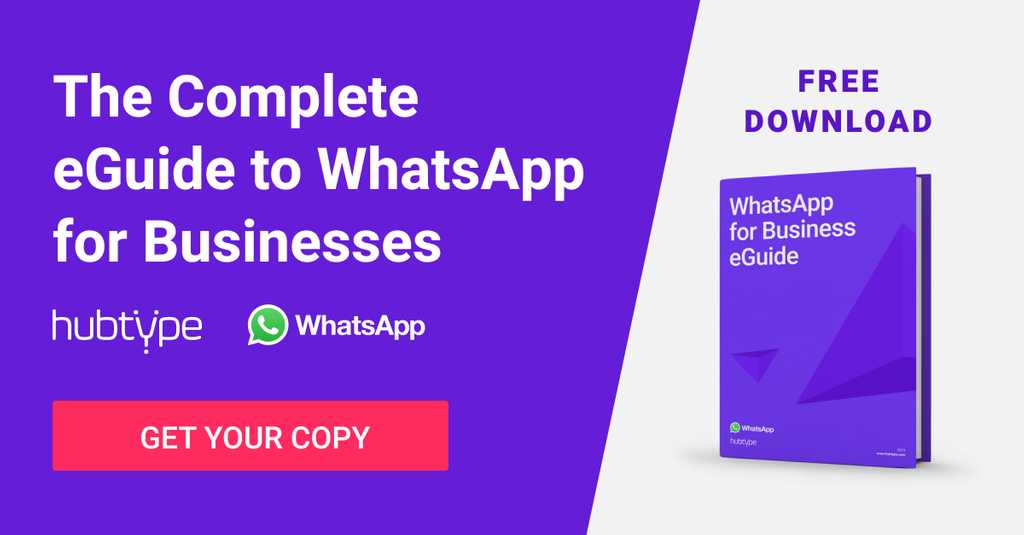WhatsApp uses end-to-end encryption by default, which is why many companies embrace it as a secure channel for customer communication. Others still have concerns about how secure it really is. Here’s what you need to know about WhatsApp security and how to remain compliant.
The digital dilemma
Now more than ever, businesses must adopt technology to communicate with customers. Without it, it’s impossible to deliver the seamless experiences that customers expect.
However, staying compliant with ongoing regulations and compliance issues isn’t easy. Digital privacy rules are changing quickly, raising valid concerns for business leaders.
WhatsApp gets a lot of attention when it comes to privacy and security. With 1.5 billion active users in 180 countries, it’s no surprise that the messaging giant is in the spotlight.
Ironically, outdated and less newsworthy technologies pose a greater risk. Email, for example, is usually not encrypted by default. Inadequate data encryption opens the door for security risks and data breaches.
Email represents a large security threat
Enterprise companies have concerns about WhatsApp, a platform that secures messages and calls with end-to-end encryption. Meanwhile, they are using insecure channels, like email.
Most email companies do not protect messages with end-to-end encryption. What’s more, copies of emails are usually stored on mail servers. If those mail servers are not GDPR compliant (and not all of them are) the business can be held accountable.
Even Gmail, Hotmail, Yahoo, and other leading mail providers lack important security features. For example, Google can technically store messages indefinitely, even when businesses use Google’s “confidential mode.”
Despite efforts to increase security through features like confidential mode, businesses are still at risk. According to Gennie Gebhart, associate director of research at the Electronic Frontier Foundation (EFF), confidential mode provides absolutely no confidentiality from Google.
“My biggest fear with confidential mode is that it will give users a false sense of security that prevents them from seeking more secure, end-to-end encrypted communication options, like Signal or WhatsApp,” Gebhart tells Forbes.
How secure is WhatsApp for customer communication?
WhatsApp was designed with security at its core. Its default end-to-end encryption ensures only your business and your customer can read messages that are sent. Nobody in between, not even WhatsApp, can read those messages.
WhatsApp also has a two-step verification built-in. This feature adds more security to your account. When two-step verification is enabled, any attempt to verify a phone number on WhatsApp must be accompanied by the six-digit PIN that you created using this feature.
In short, WhatsApp for customer communication is secure. For businesses using WhatsApp for customer communication, there are ways to make this even more secure. WhatsApp has developed specific tools, like the WhatsApp Business API, to help businesses comply with privacy regulations.
The WhatsApp Business API helps businesses stay compliant
The WhatsApp Business API is a fast, secure, and reliable way for businesses to reach their customers all over the world. For medium and large businesses, the API makes it easier to manage customer communication at scale.
The difference between the API and the regular app is that this application can be deployed on a server. A local API allows you to programmatically send and receive messages and integrate this workflow with your own systems.
With the WhatsApp Business API, messaging can be integrated with third-party tools (like CRM’s, Analytics or any API in general) and combine automation and handover to human agents to scale your conversational strategy.
Medium and large companies can apply to use the API through an official WhatsApp solution provider. Most official WhatsApp solutions providers, like Hubtype, are GDPR compliant. By using a trusted WhatsApp partner, you can rely on messaging experts to guide you through GDPR legislation.
Understanding WhatsApp API security
Once a message has been delivered, it no longer resides on WhatsApp’s servers. The contents of any delivered messages are not kept or retained by WhatsApp.
However, when WhatsApp is used at scale, businesses need to automate parts of the workflow. To do that properly, a certain amount of data needs to be stored.
Depending on your needs, an official WhatsApp solution provider will take on that data processing role. That’s why working with an official WhatsApp solution provider is so important.
For example, at Hubtype, security is a top priority. We regularly conduct penetration tests to ensure enterprise-level security. A penetration test is an authorized security attack performed (almost always) by an external company. The external company will try to hack our systems to expose any vulnerabilities that should be fixed.
In addition, we make it easy for businesses to go into our API and erase all customer information. In this way, businesses can delete identifying information when it is no longer necessary to store.
As an additional security measure, businesses must work with their business solution provider to create message templates. Message templates are used to respond to an initial customer inquiry. They cannot be promotional in nature.
Message templates require explicit permission from the customer. After the initial message template is sent and responded to, the business can interact with the customer as needed. They are not limited to using message templates. The window ends 24 hours after the customer’s last response.
Message Templates also give WhatsApp some control over how businesses use their platform. Because all messages are end-to-end encrypted, there is no way WhatsApp can read what is sent. Approving these templates helps WhatsApp deliver consistently great user experiences.
In short, the message templates serve as guardrails to help companies stay compliant. It’s a way to make sure that the customer has opted-in and given the business permission to interact with them for their specific needs.
Institutions that use WhatsApp for customer communication
At Hubtype, we work with businesses for which security is a top concern. We’ve helped Bankia, Caixa Bank, and Massimo Dutti, and Volkswagen use WhatsApp safely and securely.
85% of customers who have a good experience with a brand on WhatsApp do not go back to other channels
We know how important it is for businesses to comply with privacy and security legislation. Our tools and workflows are designed to protect you and your customers at all times.
The world’s leading banks and insurers trust Hubtype to safeguard their customer communications. We help enterprise companies serve customers on messaging at scale, without sacrificing security.

